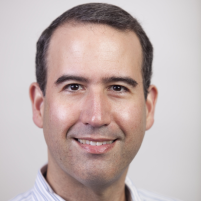|
| The Importance of Timing in Behavior: An Appreciation of the Legacy of Russell Church |
| Monday, May 30, 2022 |
| 8:00 AM–9:50 AM |
| Ballroom Level 3; Ballroom East/West |
| Area: SCI; Domain: Theory |
| Chair: Federico Sanabria (Arizona State University) |
| Discussant: Peter R. Killeen (Arizona State University) |
| CE Instructor: Peter R. Killeen, Ph.D. |
| Abstract: This symposium will discuss Russ Church’s research contributions and how the panelists have built on them in their own research to determine how to assess individual differences in timing abilities, the effects of environmental and pharmacological manipulations, and the neurobiology of timing. |
| Instruction Level: Intermediate |
| Target Audience: Basic and translational investigators interested in applying MPR, board certified behavior analysts; licensed psychologists; graduate students. |
| Learning Objectives: At the conclusion of the presentation, participants will be able to: (1) describe different procedures to measure accuracy of individuals’ ability to time events; (2) describe how timing research has been applied in several arenas; (3) describe potential areas where MPR might be applied; (4) describe oscillatory processes in timing research; (5) describe how judgments about the age of memories provide a non-episodic memory solution to putative episodic-memory studies; (6) describe fundamental principles of timing processes and their role in impulsive choices; (7) describe a new way of thinking about psychological models. |
| |
Temporal Attention and Impulsive Choices |
| KIMBERLY KIRKPATRICK (Kansas State University) |
| Abstract: Russell (Russ) Church was a dominant figure in the study of timing processes and how those processes influenced other cognitive processes. During my time as a post-doctoral fellow in his laboratory, Russ and I studied the role of timing processes in classical (Pavlovian) conditioning which led to the development of the Packet theory of timing and conditioning. My laboratory subsequently migrated to studying timing and impulsive choices, but there are multiple areas of our current research program where Russ’ influence is still apparent. This presentation will discuss recent research from my laboratory on the role of temporal attention and other timing processes in impulsive choice procedures in rats. Impulsive choice tasks present choices between a smaller-sooner and a larger-later reward, where the smaller-sooner is the impulsive choice. When rats were required to engage in active (versus passive) timing, they were more self-controlled, showed greater delay sensitivity, and demonstrated stronger preferences for the larger reward (when the delays were the same). The results suggest that tasks that engage temporal attention may be beneficial to reducing impulsive choices. Time-based interventions that involve repeated exposure to delays promoted self-control regardless of temporal attention demands. The interface of timing processes and impulsive choices can provide key insights into understanding the fundamental facets of the timing and decision-making systems. |
 Dr. Kimberly Kirkpatrick is a University Distinguished Professor of Psychological Sciences at Kansas State University. She directs the Reward, Timing, and Decision laboratory which is funded by a $1.9M grant from the National Institutes of Mental Health. She also directs the Cognitive and Neurobiological Approaches to Plasticity (CNAP) Center of Biomedical Research Excellence which was founded in 2017 through a $10.6M grant from the National Institutes of General Medical Sciences. Kirkpatrick received the Kansas State Distinguished Graduate Faculty Award in 2018 and became a University Distinguished Professor in 2019. She currently serves on the ABAI Science Board. Dr. Kirkpatrick studies everyday choices which can lead to long-term health problems such as obesity, substance abuse, and other impulse control disorders. She has found that diets high in processed sugar and saturated fats can undermine self-control and lead individuals to develop a pattern of problematic daily choices, known as impulsive choices. She has also developed interventions to promote self-control as a treatment for impulsive choices, which is the topic of her current R01 grant. Kirkpatrick graduated with a bachelor’s in Psychology from Iowa State University. She completed her PhD at the University of Iowa in Psychology with a focus on Behavioral Neuroscience and then subsequently completed her post-doctoral training at Brown University. She started her career as a faculty member at the University of York (UK) before joining the faculty at Kansas State in 2008. Dr. Kimberly Kirkpatrick is a University Distinguished Professor of Psychological Sciences at Kansas State University. She directs the Reward, Timing, and Decision laboratory which is funded by a $1.9M grant from the National Institutes of Mental Health. She also directs the Cognitive and Neurobiological Approaches to Plasticity (CNAP) Center of Biomedical Research Excellence which was founded in 2017 through a $10.6M grant from the National Institutes of General Medical Sciences. Kirkpatrick received the Kansas State Distinguished Graduate Faculty Award in 2018 and became a University Distinguished Professor in 2019. She currently serves on the ABAI Science Board. Dr. Kirkpatrick studies everyday choices which can lead to long-term health problems such as obesity, substance abuse, and other impulse control disorders. She has found that diets high in processed sugar and saturated fats can undermine self-control and lead individuals to develop a pattern of problematic daily choices, known as impulsive choices. She has also developed interventions to promote self-control as a treatment for impulsive choices, which is the topic of her current R01 grant. Kirkpatrick graduated with a bachelor’s in Psychology from Iowa State University. She completed her PhD at the University of Iowa in Psychology with a focus on Behavioral Neuroscience and then subsequently completed her post-doctoral training at Brown University. She started her career as a faculty member at the University of York (UK) before joining the faculty at Kansas State in 2008. |
| |
The Master Scientist of Timing Research: A Tribute to Russell Church |
| ARMANDO MACHADO (University of Aveiro, Portugal) |
| Abstract: Russell Church contributed immensely to our understanding of Timing, the ability of animals and humans to discriminate intervals and durations of events. In this talk, I will analyze some of Church’s empirical studies, including his seminal “Bisection of Temporal Intervals”, and his theoretical models, from the influential Scalar Expectancy Theory to the more recent Modular Theory of Timing. I will also explain how Russell Church’s ideas and findings shaped our work on how animals learn to time. |
 Armando Machado obtained his Ph.D. in Experimental Psychology at Duke University. His research on the conditions in which pigeons generate highly variable, random-like behavior received the Annual Dissertation Award from Division 25 of the American Psychological Association. After his PhD, Armando joined Indiana University as an Assistant and then a tenured Associate professor. In 2000 he moved to the University of Minho where he became Full professor, and in 2019 he moved to the University of Aveiro. Armando’s research focuses on temporal learning, numerical discrimination, choice, and decision making in animals. In 2010 he received the Research Merit Award from the School of Psychology, and in 2014 he received the Scientific Merit Award from the University of Minho. He has served as Editor of the journal Behavior and Philosophy and Associate Editor of Psychonomic Bulletin & Review and the Journal of the Experimental Analysis of Behavior. He was the President and Program Chair of the Society for the Quantitative Analysis of Behavior, and the first president of the Portuguese Association of Experimental Psychology.
|
| |
How Rats Learn: An Unfinished Book |
| DAVID FREESTONE (William Paterson University) |
| Abstract: By 2015, Russ Church decided to write a book that he never got a chance to finish. I was fortunate enough to be his coauthor. Its title—Temporal Conditioning: How Rats Learn—conveyed his view that timing and conditioning should be understood together. But the contents of the book conveyed a way of thinking about research that is so often left out of print. This talk will focus on Russ Church’s evolving views on animal behavior from 2005 to 2015, and where he hoped his ideas would lead. I’ll use this to describe how Russ thought about research—the flow from procedure to psychological model, and from model to evaluation. |
 David Freestone earned a Ph.D. in Russ Church’s lab in 2012. After a post-doc in neuroeconomics (NYU), he became a professor. His work focused on timing, conditioning, and value-based decision-making. These days, David works as a researcher and data scientist at a virtual eating disorder treatment center, and consults with animal facilities toward building robust data infrastructure to support the welfare of their animals. |
| |
Time, Memory, and the Legacy of Russ Church |
| JONATHAN CRYSTAL (University of Indiana) |
| Abstract: In this presentation, I reflect on the impact Russ Church had on me and my research trajectory. I briefly describe my research on basic timing mechanisms. Next, I describe how timing research and immersion in the Church lab impacted my entry into research on memory. Finally, I describe the importance of time in the development of animal models of episodic memory. |
 Jonathon D. Crystal is Provost Professor at Indiana University in the Department of Psychological & Brain Sciences. He was a grad student in Russ Church's lab at Brown University from 1992 to 1997. Jonathon D. Crystal is Provost Professor at Indiana University in the Department of Psychological & Brain Sciences. He was a grad student in Russ Church's lab at Brown University from 1992 to 1997. |
|
| |